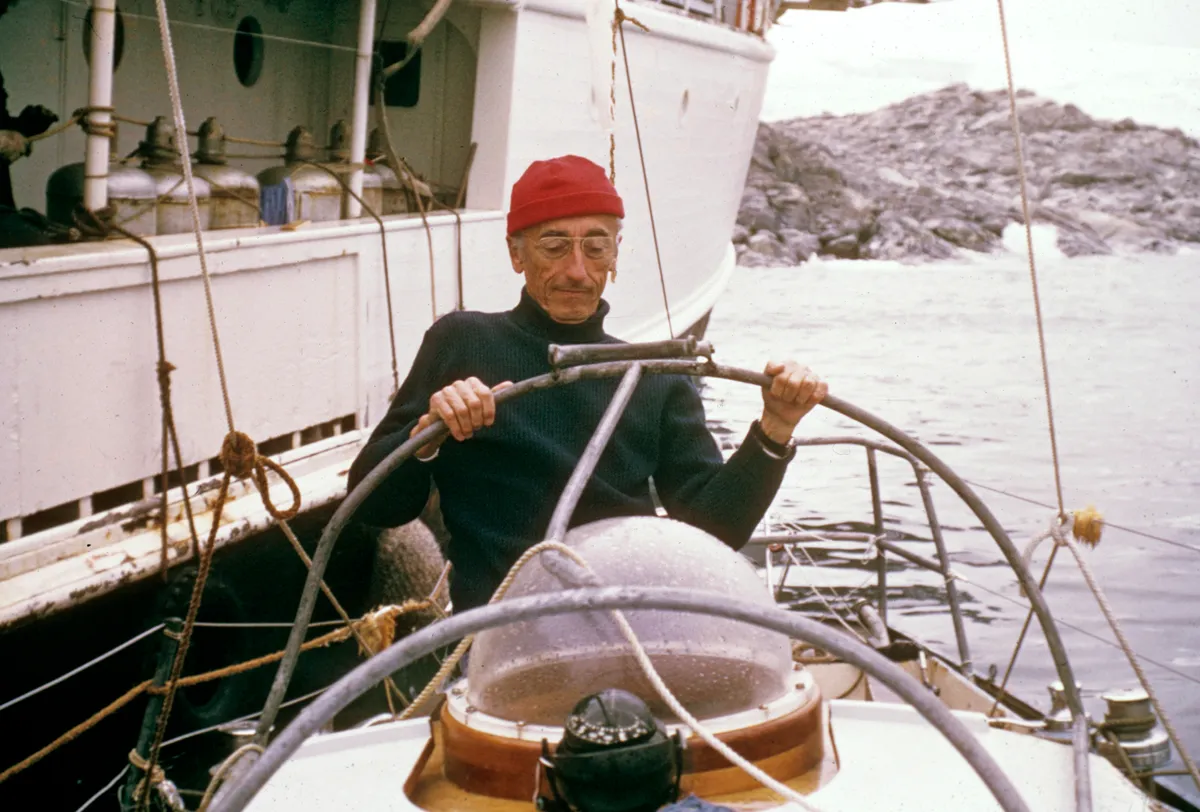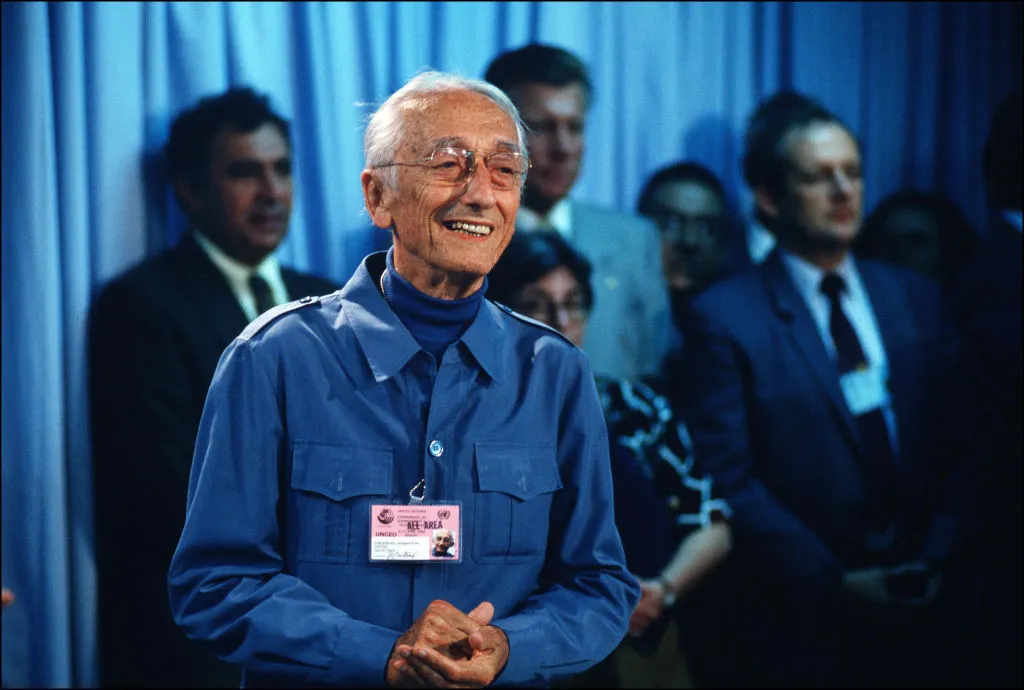When and where is Becoming Cousteau being screened?
Becoming Cousteau will be showing in UK cinemas from 12 November, and was released for US cinema screenings in October.
Watch the trailer for Becoming Cousteau
Please note that external videos may contain ads:
Who was Jacques-Yves Cousteau?
Commander Jacques-Yves Cousteau (sometimes referred to as just ‘Jacques Cousteau’) was many things: an explorer, a conservationist, a film-maker, an innovator, an author, a husband, a father, and much more. He was born in 1910 and before becoming involved in all things underwater, he was a French naval officer. However, an automobile accident broke both his arms, and it was during his recovery that he started diving and then became a naval officer.
He went on to co-develop the Aqua-Lung prototype, carry out underwater archaeological excavations, survey waters for an oil company, build underwater villages and much more.

Across his life, he filmed numerous movies, short films, and documentaries, and wrote more than 50 books. He was the inspiration for the title character in the 2004 film The Life Aquatic with Steve Zissou, which was directed by Wes Anderson and starred Bill Murray as Zissou.
Cousteau died of a heart attack in 1997, shortly after his 87th birthday. His legacy includes an environmental foundation called The Cousteau Society, which he founded in 1973 and has more than 50,000 members.
What is Becoming Cousteau about?
Directed by the award-winning documentary maker Liz Garbus, this film from National Geographic takes on the tough challenge of bringing the life of this extraordinary man to the silver screen in just 90 minutes.
With footage taken by Cousteau himself or by his family and crew, we are allowed an insight into who he was as a person and as an explorer, renowned around the world for his films, books and conservation activism.

There is a lot to cover, so the film only lightly touches on different aspects of his work and life, but still doesn’t veer away from some of the uncomfortable aspects – his struggles as a husband and father when he was so focussed on exploring, and the times when he and his crew handled animals in a way that would be seen as inappropriate today, such as handstands on top of giant tortoises.
In the film, he talks about a time when his crew angrily killed sharks that had been eating a baby dolphin and how he found it difficult to re-show those early films. It reveals the evolution of Cousteau, from being funded by oil companies to becoming the conservationist who created a legacy that still continues today.
Interview with producer Mridu Chandra
Mridu Chandra has produced a number of award-winning documentaries including Electoral Dysfunction and Out in the Night. The New York-based film-maker tells us about taking a deep dive into Cousteau's archival footage.

Why make a film about Cousteau?
Director and co-producer Liz Garbus and I both grew up knowing of Cousteau and admiring him. About six years ago, she was reading a book about him to her children and she realised that most people nowadays wouldn’t actually know who he is – even though all the 4K and GoPro underwater filming and photography we see in natural- history documentaries nowadays is built upon his groundbreaking work.
Is Cousteau’s work still interesting to modern-day audiences?
It’s particularly timely today with many people suffering from climate grief and eco- anxiety, and feeling unable to act on climate change, which is something his life speaks to in a personal way because he turns that feeling to action and activism. The film is both for people with nostalgia who watched his original films and interviews, and for people to whom this is an introduction to him and his work.
Where did you find the footage?
A lot of his films are already out there and available to watch online, so what we wanted to do was go back to the original 16mm and 35mm films that he shot (even after television shifted to video he continued to shoot on film). It’s taken Liz and National Geographic years of effort working with Cousteau’s family who have the original archival footage. It’s immense! This footage has been sitting in a vault since he passed away, so it was so exciting to get access to these films.
I had the opportunity to live in Paris to work with an archivist to digitize them. We slowly went through and logged everything. Some days there was not so much, some there was repeated footage, and then there were the days when you find the first footage of Simone (Cousteau’s first wife)! Although I had done a lot of reading on his life, it was all very intellectual, and then when I saw these films, it was all brought to life.
How did you set about editing it down into a 90-minute film?
We were trying to show the arc of his life, and our creative approach was to allow him to narrate his own story and take us on his journey. A lot of the film footage had no sound, as they were shooting underwater or on a film camera.
We had around 550 hours of material, plus an additional 100 hours of audio. We couldn’t tell everything, we had to leave so much out. I’d say for every five minutes in the film, there are 10 stories that we had to miss out and couldn’t explore.
I hope that it will inspire people to go deeper, and to watch his films and to read his books.
Main character: Jacques Cousteau. © Thomas J Abercrombie/National Geographic
